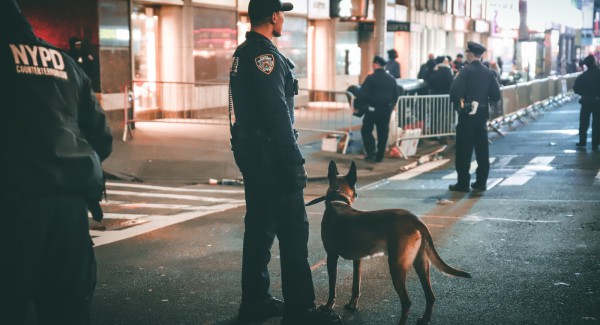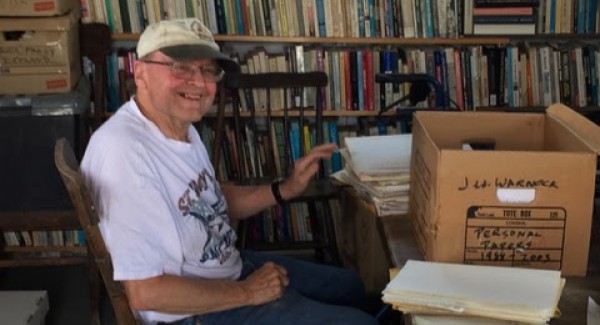“My quality of life has been compromised”: U of S study finds STC closure has had a devastating impact on Saskatchewan people
_1400_787_90_s_c1.jpg)
In 2017, the Saskatchewan Party decided to shutter the Saskatchewan Transportation Company, a decision that left thousands of Saskatchewan residents without access to intercity travel and negatively impacted groups as diverse as small business owners to farmers to the provincial healthcare system. Since then, community members and activists have fought back against the cuts and there has been a stream of damning reports of people unable to access healthcare, visit family, or flee domestic violence. On Thursday, September 10, Stop the Cuts, a provincial non-partisan anti-austerity group, hosted a virtual town hall where they discussed the ongoing consequences of the closure. Among the speakers at the event was Jacob Alhassan, a researcher in the department of community health and epidemiology at the University of Saskatchewan, who presented the findings of his year-long study into the politics and fallout of closing STC.
“We wanted to understand the discourses that made the closure possible,” Alhassan tells Sask Dispatch about his research. “We wanted to understand the impacts, and whether those impacts would differ for people based on where they stand in society – so if they have a disability, or [are] a man or a woman, things like that.”
His study found that women were harmed more by the closure of the STC. “Middle-aged women in particular seemed to be those bearing the heavy brunt of time poverty,” Alhassan says. “They complained bitterly about no longer having time for themselves because they have to spend so much time driving.”
He adds that “when your mother or uncle or whoever cannot ride the bus, you don’t just fold your arms and do nothing. You step in to help.” The result is that the impacts of the bus closure reverberate far beyond those who were riders themselves. And those who weren’t able to get rides from family or friends told Alhassan about missed birthdays, missed funerals, and a dwindling sense of community. Some of the losses have been small – things that cannot be quantified, but have lessened the lives of those who used to use the bus. One town hall attendee said that shopping and visiting and attending community events is “simply not something I can look forward to anymore.”
Those who weren’t able to get rides from family or friends told Alhassan about missed birthdays, missed funerals, and a dwindling sense of community.
During the town hall, Alhassan noted that in the absence of safe, affordable public transit, some younger women have resorted to hitchhiking. “I spoke to a few people who described for me that they had been asked to give sexual favours” in exchange for rides or access to a vehicle, he says.
Crystal Giesbrecht, director of research and communications at the Provincial Association of Transition Houses and Services of Saskatchewan (PATHS), who spoke at the town hall, said one woman reported to a staff member that she had to hitchhike to visit her children, and ended up being sexually assaulted and then abandoned in the ditch. Giesbrecht also noted that the lack of safe, reliable transit meant that some women facing domestic violence weren’t able to get to shelters safely. This echoes the findings of a report from Sexual Assault Services of Saskatchewan from earlier this spring, which cited the loss of STC as a factor that prevented some domestic abuse victims from accessing help.
“[Shelter] staff told us that they would have women call and that they were going to try and make it to the city, and they’d just not show up,” Giesbrecht told the town hall. “So then the staff are left wondering if the woman decided not to leave or if she set out and something bad happened.”
Disabled people have also paid a heavy price for the loss of the transit service, something that Alhassan’s study noted, and that was confirmed by Terri Sleeva, a Regina activist who uses a wheelchair because of multiple sclerosis. “The disability community in Saskatchewan is profoundly impacted by the lack of availability and quality service in public transit,” Sleeva told the town hall.
"My ability and my right to express myself and attend community functions has been eliminated,” Sleeva says. “My quality of life has been compromised.”
She says the Rider Express, the private bus company that popped up in the absence of the STC, isn’t wheelchair accessible. “Previously, when STC existed, I had the capacity to participate in community, social, and political activities almost anywhere in the province. Now my ability and my right to express myself and attend community functions has been eliminated,” Sleeva says. “My quality of life has been compromised.”
Alhassan says that’s a systemic problem. ”By not having a bus, we create a system that routinely discriminates against people,” he says. “It normalizes their exclusion.”
And it’s not just exclusion. The loss of STC has interfered with people’s ability to access healthcare, something Alhassan says is a violation of their human rights. “People are often very excited to talk about how there is free healthcare in Canada, compared to America. But that doesn’t mean anything if you can’t get to the hospital,” Alhassan says. “This whole system is built so nicely that you don’t have to pay at point of use, that is a beautiful concept, but if you can’t get there, that doesn’t mean anything at all.”
And people can’t get there. “People are missing appointments,” Alhassan says. “I heard a lot of people say ‘I just won’t go anymore.’ They wait for their condition to get worse and then they go to the hospital with a much worse condition. Then, of course, their treatment becomes much more expensive.” And despite the political rhetoric that people can find a ride elsewhere, Alhassan says that’s simply not true. “One person went so far as to advertise on the radio to find rides,” he says. “And they weren’t successful.”
“It’s really hard to tell someone with cancer, ‘You can’t have your medication today because the drugs didn’t show up.’”
The impacts, especially on the healthcare sector, aren’t limited to individuals. “I came into contact with health workers who talked about thousands of dollars of medication being thrown out,” because it arrived late, frozen, or otherwise unsuitable for use, Alhassan says. “They mentioned significant challenges with transporting equipment, because, you know, the STC was a very, very clear and consistent system. You knew when he was coming and when it was going so you could plan and do things with it. Now, all of that is not possible.” One healthcare provider told Alhassan, “It’s really hard to tell someone with cancer, ‘You can’t have your medication today because the drugs didn’t show up.’”
Alhassan says that STC should be thought of not just as a public transit system, but as a fundamental component of the healthcare system. “If there's one thing I have learned from my entire research project is that buses are not just buses,” he said. “Many things went through the bus. People, yes. But the bus was used to carry vaccines. The bus was used to carry medical equipment. The bus was used to carry blood.” Now all those moving parts have to be moved through private companies, private vehicles, and sometimes, they simply don’t move at all.
When the Saskatchewan Party decided to end the STC, their two main arguments were that the buses were losing money, and that ridership had declined by 77 per cent since the service first began in 1946. Alhassan says he looked at those factors during the course of their research.
He says that financial losses are nothing new for STC, but using them to justify shuttering the bus service is a political decision that a government makes when it decides to put profit over people. “When you look through the very early records of STC, there are some very fascinating things. So for example, you will see places where the bus made a loss and in the recordings they’ll say, ‘We are proud we made a loss because we were able to solve x problem or y problem,” he says. “So for instance, there was one example where they made losses, but they were happy because the winter was so harsh and they were able to help citizens.”
Alhassan says that STC should be thought of not just as a public transit system, but as a fundamental component of the healthcare system.
He says that when the bus system was established, “what [the Saskatchewan Government] had in mind was not profit, per se. They were able to solve a problem. If a bus makes money at the expense of human dignity, if the bus makes money but people's human rights are violated, is it worth it?” he asks.
As for the decline in ridership, he says that use of the bus service has historically fluctuated. “It is very important to understand that from the very early days, there were times when bus ridership fell,” he says. “When I looked at the 1950s report, for example, they reported that there was a significant fall in ridership and the explanation they gave was that more people have started to buy cars around the ’50s.”
He says that rather than view a decline in ridership as a motivation to cancel the service, more needs to be done to provide incentives for people to use public transit. “At this point in time, we all agree that buses are an important contribution if we really wish to do something about climate change,” he says. “There should be a clear reward system for people [when] they use the bus, because when people use it, they are making an important contribution to reducing greenhouse gas emissions.”
“We need to start thinking about the bus in terms beyond profit,” he says. “We need to start thinking about it in terms of human rights, climate change.”
He says that public servants could also be mandated to use the bus when they’re travelling on government business. He says that when he talked to health-care workers high up in the health-care system, they told him that in order to travel from Regina to Saskatoon and vice versa, they used their own vehicles or rentals paid for with tax dollars.
Alhassan and his team are calling for an audit of the health-care system to analyze the costs – financial and human – of losing the bus service. He says that activists have done good work in keeping this story in the public eye, but they’ll need to keep up the pressure.
“We need to start thinking about the bus in terms beyond profit,” he says. “We need to start thinking about it in terms of human rights, climate change.”




